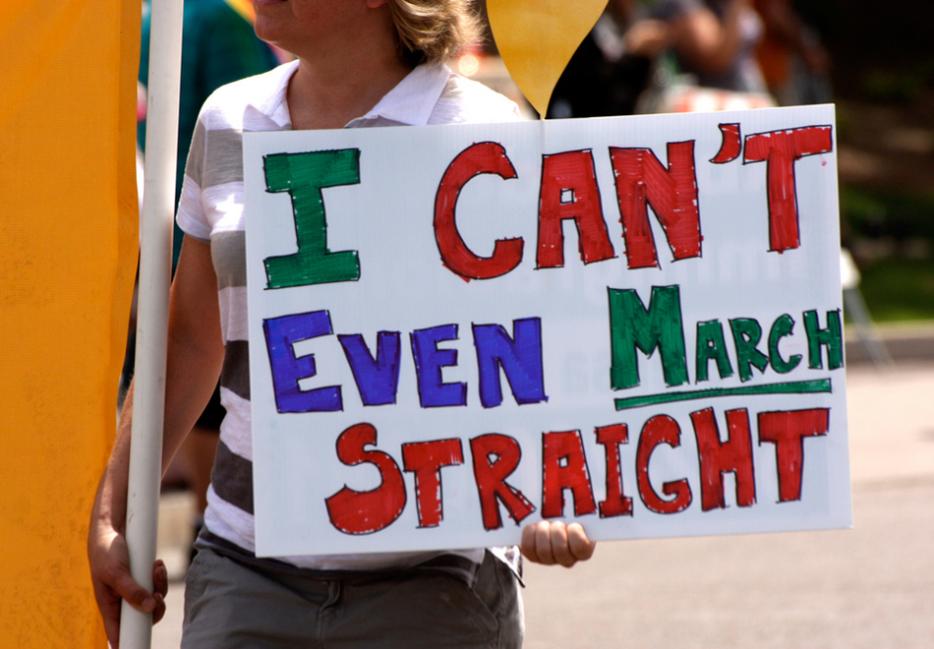What comes to mind when you think back a decade to 2004? A few things stick out for me: the mounting horror over the Iraq War; the beginning of the long dance of veils to bring Michael Ignatieff into Canadian politics; the speech one Barack H. Obama gave to the Democratic National Convention that year; and, of course, the re-election of George W. Bush that would put Obama on the road to the White House in 2008.
Bush’s re-election was helped in part by nearly a dozen ballot initiatives in red states that banned gay marriage that year, in a time when the Republican Party was, amazingly, even less discreet about its homophobia than it is today. But ten years later, anti-gay measures across the United States are falling before the U.S. Supreme Court’s decision in United States v. Windsor. There may yet be incremental reversals, but wiser writers than I are confident the forces against marriage equality in America have been dealt a mortal blow.
This is only in part because public opinion has turned around on the question of marriage equality. After all, public opinion has often been a lagging indicator when it comes to human rights—as recently as 1994, a majority of Americans opposed interracial marriage. The majority of Americans do now tolerate gay and lesbian marriage, but there’s a funny wrinkle to that fact: most Americans think the rest of the country is more intolerant than they are.
To put it more precisely, the Public Religion Research Institute finds most Americans support gay marriage, but large majorities of marriage equality opponents—and a substantial minority of strong supporters—assume (incorrectly) that equality is on the wrong side of public opinion. While conservative politicians since Richard Nixon have invoked the “silent majority” to speak to conservative, working-class voters, the real silent majority seems to be in favour of justice.
This is a problem, because people who think they’re alone in a crowd of bigots don’t speak out when bigotry shows its face. It’s tempting to ascribe some responsibility here for the comical situation in Arizona, where the awful-on-its face SB 1062 would have allowed private businesses to deny service to gay and lesbian couples on the grounds of religious belief. Ridiculous laws tend to be justified in ridiculous ways, and SB 1062 was no exception, with Republicans apparently believing that somewhere in the Gospel of Christ there’s a chapter and verse about kicking two dudes out of the Tuscon Wendy’s for holding hands.
SB 1062 was passed by state Republicans only to have some of those same Republicans quickly turn around and beg Republican governor Jan Brewer to veto the bill. It’s bad enough that reactionaries thought themselves sufficiently in the majority to be able to pass a bill like this; clearly, non-hateful Republicans (they exist!) needed to come out of a closet of their own.
There are lots of necessary responses to the bad arguments raised every time we try to widen the circle of rights. Sometimes, we need to engage the arguments on their merits, if we can resist the impulse to mock them outright. (No, requiring businesses not to discriminate against paying customers is not the same as slavery.) Other times, all that’s needed is to speak up, show our faces, and speak out.
The downside to success, if it comes, is the forces of reaction might see fewer embarrassing, own-goal failures like SB 1062 in Arizona, many of which do tend to be, at least in hindsight, pretty entertaining. But it’s a loss we should all welcome, as loudly and publicly as possible.






